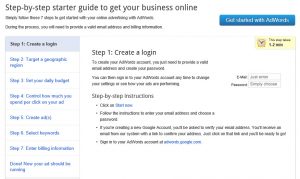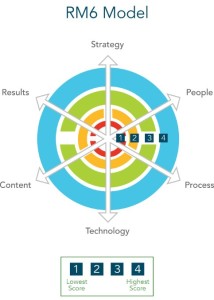
In our experience, the most successful leaders share many of the same characteristics. They possess superior communication and organizational skills, confidence and an ability to delegate — strengths necessary to effectively achieve results.
However, merely being effective does not make headlines or history books. Leaders who leave the most impressive legacies are those with exceptional abilities in a few critical areas.
They are the Howard Schultzes and the Sheryl Sandbergs of the world, but they can also be found within your company or candidate pool—you just need to recognize them.
What sets these exceptional performers apart from managers who are effective?
A competency validation study we conducted with the American Management Association revealed four characteristics that differentiate effective managers from highly effective managers.
- Initiative
- Collaborative Mindset
- Ability to Build Trust and Foster Accountability
- Critical Thinking
From a hiring standpoint, these characteristics should be built into your organization’s screening process to distinguish between a good managerial candidate and a great one. Read on to discover each characteristic and how to spot it during an interview.
1. Initiative
Regardless of workload or pressure, highly effective leaders maintain the ability to see tasks through from start to finish. While others may wait until they have all the information to make a decision, the most effective leaders recognize when it is appropriate to act—and they trust their instincts that they’re making the right call. They are capable of reacting decisively, especially in the face of a crisis. They are proficient at resolving problems and making progress.
Leaders with initiative do not procrastinate; they approach all matters with an appropriate degree of urgency. These abilities make them extremely effective in leadership roles, capable of thinking on their feet and proactively taking initiative to resolve issues before they snowball into larger problems.
Behavioral interview questions that reveal Initiative include:
- Provide an example of a tough situation where you took action with minimal direction from others?
- Provide an example of a time when you took initiative at your last job?
- Tell me about a time when you had to act quickly without having all the information. What did you do and what was the outcome?
2. Collaborative Mindset
Highly effective leaders also possess the ability to build highly effective teams; teams capable of successfully executing strategies to meet goals. To do this, they empower employees by including them in decision-making and strategy development. This inspires greater employee trust, loyalty and ultimately, employee buy-in. Highly effective leaders also understand the importance of relationship development. They encourage bonding between employees to bolster cooperation, collaboration and information sharing. They work at breaking down silos by establishing shared goals and ensuring that people work together to achieve shared goals.
Questions that reveal collaborative mindset include:
- Describe a situation where you had to build or rebuild a team.
- Provide an example of a situation where you motivated others to work together toward common goals in the face of competing priorities/goals.
- What was the greatest obstacle you faced in building a strong team? How did you overcome it
3. Ability to Build Trust and Foster Accountability
Highly effective leaders influence by earning the trust of their team. They hold themselves accountable for the performance of their team and set a constant example for employees to follow. If they make a promise, they keep it. If they commit to something, they see their commitment through to the end. If they drop the ball, they don’t blame others or make excuses, they focus on getting things back on track and preventing it from happening again.
They dutifully face issues with a sense of responsibility and honesty. In doing so, they not only set a standard for what is expected of their employees, they position themselves to confidently hold employees accountable for their own performance.
Questions that reveal an ability to establish trust and foster accountability include:
- Tell me about a time when you had to rebuild trust that may have been compromised within a team.
- Give an example of a time when you made a commitment in your professional life and stuck with it, despite challenges.
- Give an example of how you’ve held your team members accountable for their actions.
4. Critical Thinking
Highly effective leaders are superior critical and analytical thinkers. They question when other assume. They use sound reasoning skills to avoid biases and systematically resolve problems, greatly reducing wasted time, energy and more importantly, decreasing the risk of making a problem worse by choosing a wrong approach to resolution.
These individuals are excellent learners, capable of interpreting and communicating complex topics. They’re able to make keen observations and spot themes or patterns others may miss.
Questions that reveal critical thinking:
- Tell us about a time when you had to make an important decision. What facts or data did you consider, and what was the outcome?
- Describe a situation when you made a decision that was controversial or that others disagreed with. How did you convince others to see your point of view?
- Here’s a situation we’ve dealt with before at our company. How would you handle it?
These four characteristics aren’t the only abilities to assess when selecting future leaders, but should be built into your interview process.
(285)




